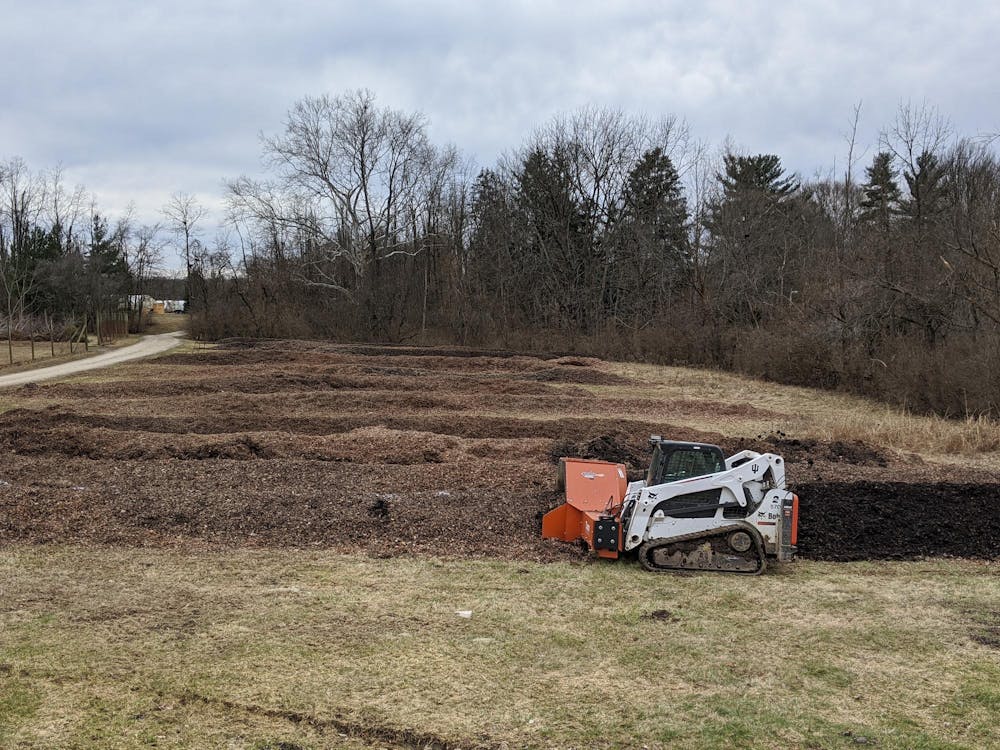The IU Campus Sustainability Innovation Fund is accepting project applications through April 6. This is the CSIF’s first year back since its COVID-19 pandemic funding freeze.
Now, the fund has a three-year commitment of university budgetary backing. IU Chief Sustainability Officer Jessica Davis said before the pandemic, the fund was primarily geared toward financing research initiatives undertaken by faculty, but now the CSIF aims to make its project support accessible to a wider audience — and to students in particular — in its new chapter.
The CSIF has a $50,000 funding pool for backing projects that aim to improve campus sustainability — that is, make the Bloomington campus environment more usable, habitable and eco-friendly over a longer period of time. Proposals that have secured funding vary in scope, focus and complexity, from establishing a new green space on campus to completing an energy assessment.
“The fund is an opportunity to bring innovative solutions to the fore,” Quentin Gilly, director of campus sustainability at IU Bloomington, said. “If projects don’t have funding in place already, we can help bring those sustainability ideas into real life.”
Anyone affiliated with IU with an idea — backed by budgetary information, cited campus contacts and letters of support — can apply. To Davis, opening the application process to people with different experiences who have seen campus sustainability issues firsthand produces insightful project ideas.
“We cannot have eyes and ears everywhere, so we can leverage the eyes and ears of our campus community,” Davis said. “Often, they have some of the best ideas. Because they are engaged in this work, they see the problems at the fundamental level and they have novel solutions.”
Although projects’ central issues and means of addressing them are the focus of the application evaluation process, the CSIF application extends far beyond the conceptual.
Additional information, such as why a project is worthy of funding, how it might impact campus, how that impact will be measured and what kind of return on investment to expect, is requested. The application also seeks proposals that will specifically contribute to IU’s Climate Action Plan.
The CSIF’s backing for projects comes not only through money, but also through direct support from resources and personnel. As a result, applicants are asked to provide insight into what assistance a project might require and whether that project will make effective use of that assistance.
“I’m looking for projects that will have the greatest amount of impact for the dollar amount spent,” Davis said. “I want the project to help campus operations, provide a learning opportunity for students or a way for students to get involved and be visible.”
However, the priority is project feasibility.
“There may be ideas that sound good on paper, but simply because people don’t know the complexity of IU, they don’t know how to navigate something toward a reasonable proposal,” Davis said.
Because the CSIF is looking increasingly to student proposals and applications from a broader audience, an increase in small-scope, less expensive projects is expected. Gilly hopes providing support to diverse applications will allow available money to be stretched to its fullest potential.
“We want to source ideas and inspiration from as many people as we can,” Gilly said. “We’re really trying to make sure that we have all the options on the table: how can we make our physical campus environment accessible to students, faculty and staff so that they can utilize the space in new and different ways to achieve their goals?”
O’Neill School of Public and Environmental Affairs professor Jon Eldon and Landscape Coordinator Mike Girvin submitted a successful proposal in 2018 for managing IU’s massive annual amounts of organic waste. Eldon wrote that the CSIF has exciting potential to bring about meaningful change on campus sustainability in a statement to the IDS. This year’s application to the Campus Sustainability Innovation Fund can be accessed on the Office of Sustainability website until April 6.
“Finding funding for sustainability-related projects has always been difficult, especially for local and highly applied projects. Being available to students, staff and faculty means that this fund can support a wide range of projects, and at a $50,000 total, it can provide more than just superficial support,” Eldon wrote. “Innovation often implies significant costs and risks, and by helping to remove these impediments, this grant program can play an important role in improving sustainability on the IUB campus.”



